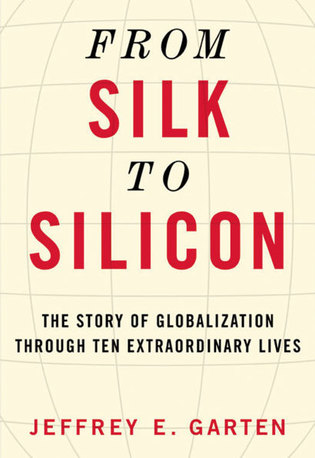 loading
loading
Reviews: July/August 2016 View full imageFrom Silk to Silicon: The Story of Globalization through Ten James Ledbetter ’86 is the editor of Inc. His most recent book is Unwarranted Influence: Dwight D. Eisenhower and the Military-Industrial Complex. The resulting book is a sometimes-breakneck journey across several centuries, from Genghis Khan’s management innovations to Andrew Grove’s honing of the computer chip at Intel. Some of Garten’s profile choices (John D. Rockefeller) may seem more obvious to the casual reader than others (Prince Henry the Navigator, the fifteenth-century Portuguese explorer whose conquest of Morocco ushered in the era of Western colonialism). Each chapter stands on its own as one more link in a chain uniting humanity. When, for example, Cyrus Field finally lays down a reliable transatlantic telegraph cable in 1866, the time required for businesses and financial institutions to buy and sell, and for governments to communicate with diplomats and generals, instantly went from hours to minutes. Field “put globalization in overdrive,” Garten writes. Yet the book can also be read as a collective personality portrait, because many of the individuals have surprising traits in common. Rockefeller, Margaret Thatcher, and financial pioneer Mayer Amschel Rothschild all grew up in very humble conditions. Outsider status is another recurring theme: Rothschild lived even as a wealthy adult in a Jewish ghetto in Frankfurt; Grove came to America as a Hungarian refugee. The single-mindedness that Garten identifies as a globalizer’s driving force often seems to come from a yearning to close some physical or psychological gap. Garten deliberately avoided any figure whose influence on globalization was negative (“No Hitlers, no Osama bin Ladens,” as he puts it). This choice, while sensible, yields a picture that mostly overlooks globalization’s losers while celebrating its victories. Nonetheless, the book is a powerful example of illuminating the present through a rich, readable mining of the past.
|
|